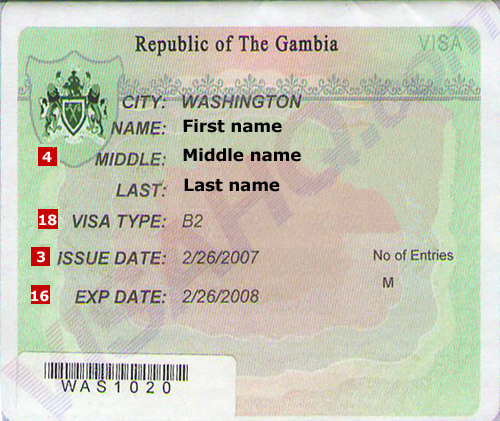Gambia Embassy list in Ghana
Need help?Chat with us
Why Trip Registration at the Gambia Embassy is Important
Registering your trip with the Gambia embassy is crucial for ensuring your safety while abroad. In emergencies such as natural disasters, political unrest, or medical crises, having a formal registration can significantly enhance communication between you and the embassy. For instance, during an earthquake or flood, the embassy can quickly provide assistance, ensuring you are safe and informed about evacuation procedures or shelter options. Similarly, in the event of political unrest, registered travelers can receive timely updates and potential safety measures directly from the embassy. Moreover, if you were to fall ill or encounter a medical emergency while traveling, the embassy can facilitate access to local healthcare and support. Thus, registering your trip not only keeps you informed but also allows the embassy to better assist you in times of need.
Gambia Embassy FAQs
Can the Gambia embassy assist in legal issues abroad?
Yes, the Gambia embassy can provide assistance regarding legal issues, including referral to local legal resources, information about the legal system, and support during detention.
What should I do if I lose my Gambia passport in Ghana?
If you lose your Gambia passport in Ghana, contact the embassy immediately. They will guide you through the process of reporting the loss and obtaining a replacement passport.
Does the Gambia embassy offer help for students studying in Ghana?
Yes, the embassy offers support to students, which can include guidance on academic matters, legal advice, and assistance in emergencies.
What types of visas does the Gambia embassy issue?
The Gambia embassy can provide information about visa types, processes, and requirements for foreign nationals wishing to visit or reside in Gambia.
Services Provided by Gambia Embassies in Ghana
Passport Services
- Issuance of new passports
- Renewal of existing passports
- Lost passport replacement
Visa Issuance for Foreign Nationals
- Visa applications for travel to Gambia
- Information on visa requirements
Assistance in Legal or Medical Emergencies
- Legal referrals and guidance
- Medical assistance and contacts
Travel Alerts and Safety Updates
- Information on safety and security for travelers
- Travel advisories for potential risks
Support for Nationals Detained Abroad
- Assistance for Gambians detained in Ghana
- Legal support and advocacy
Summarized Diplomatic Presence
The Gambia maintains a significant diplomatic presence in Ghana, featuring an embassy located in Accra. This embassy plays a vital role in fostering bilateral relations between the two countries. Its primary functions include facilitating diplomatic communication, providing consular services to Gambians abroad, and promoting trade and cultural exchange. The embassy also actively engages in humanitarian initiatives and works to enhance cooperation in various sectors such as education, health, and security. This diplomatic representation is crucial for both nations as it strengthens economic ties and promotes mutual understanding.
